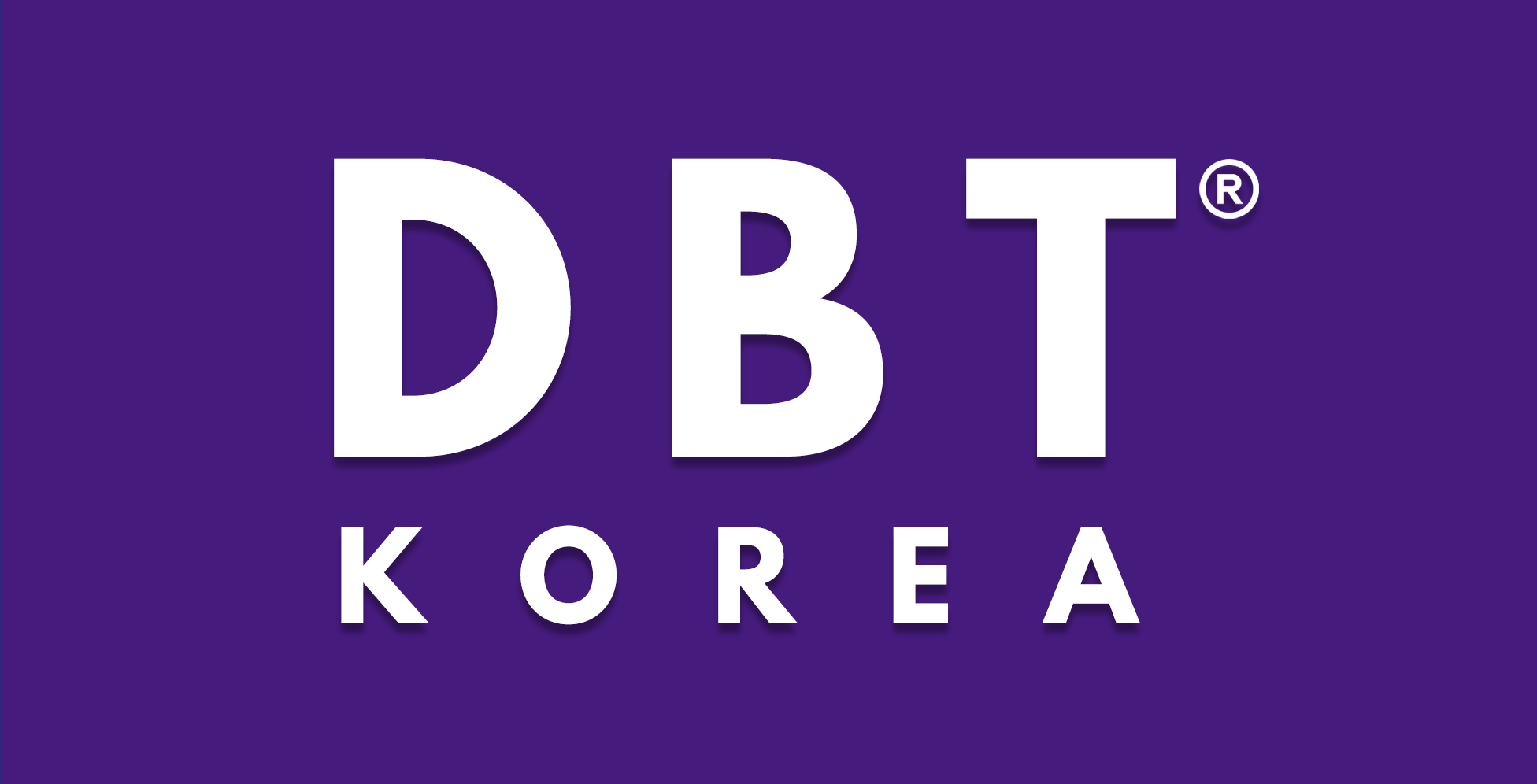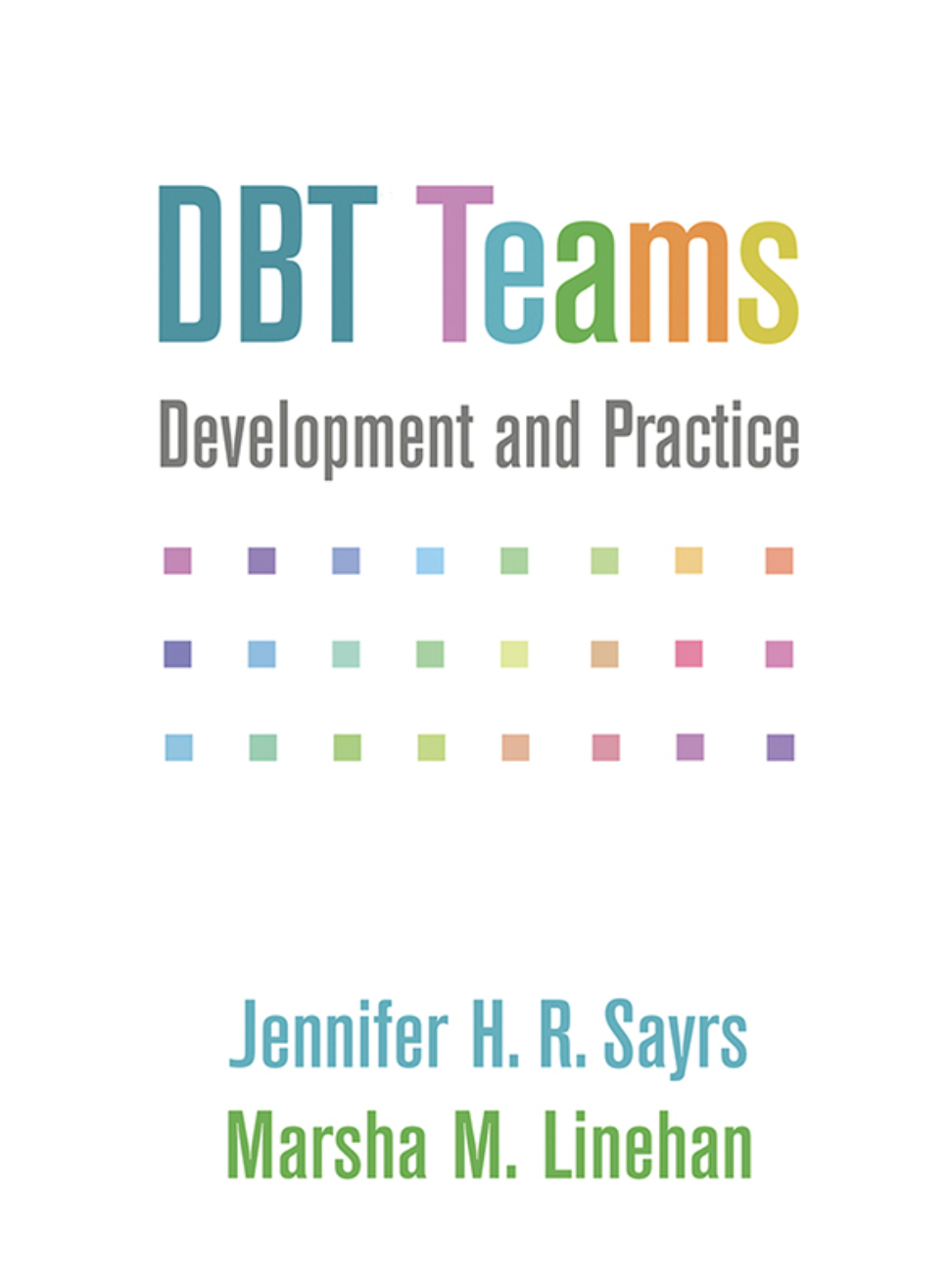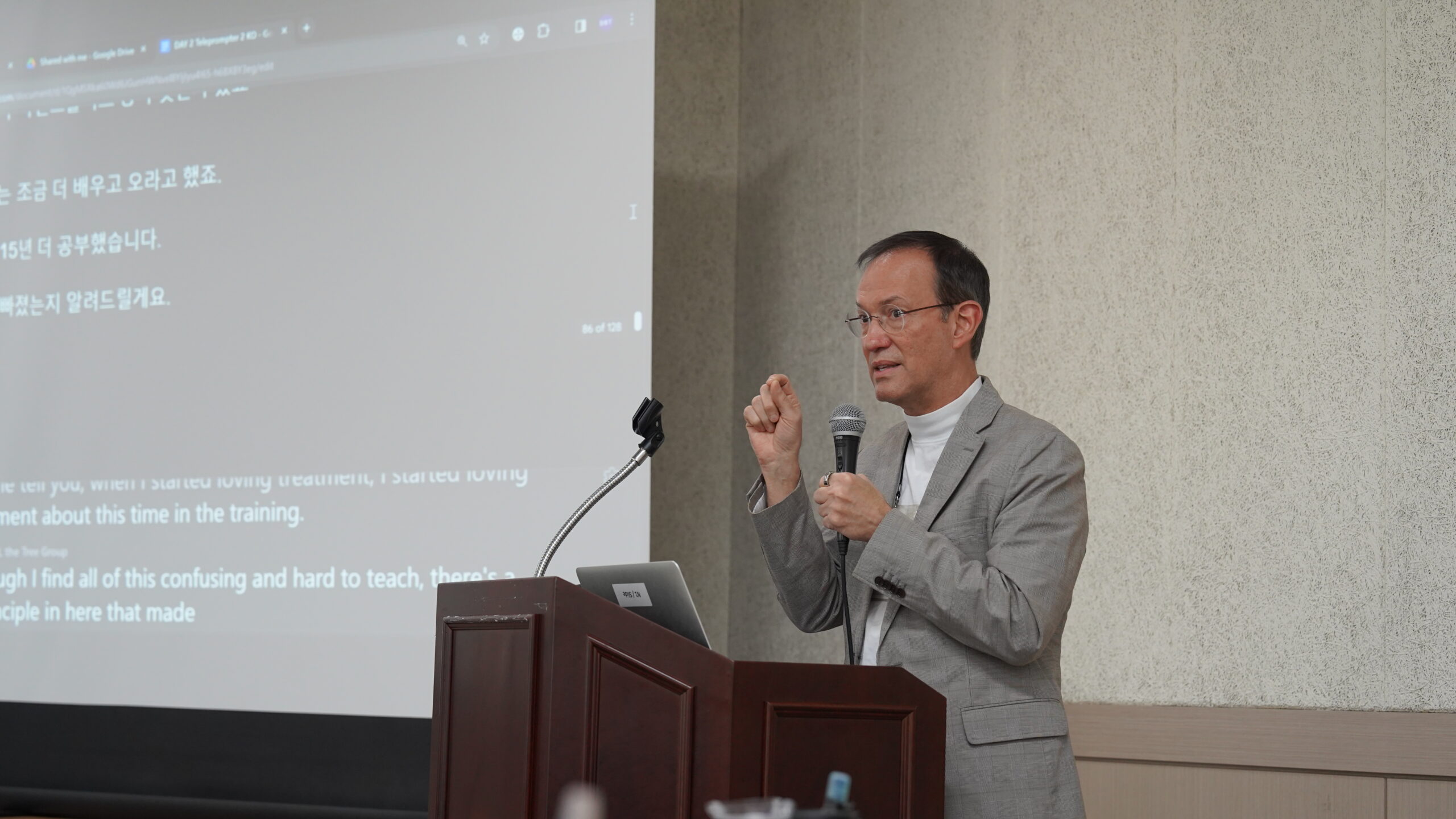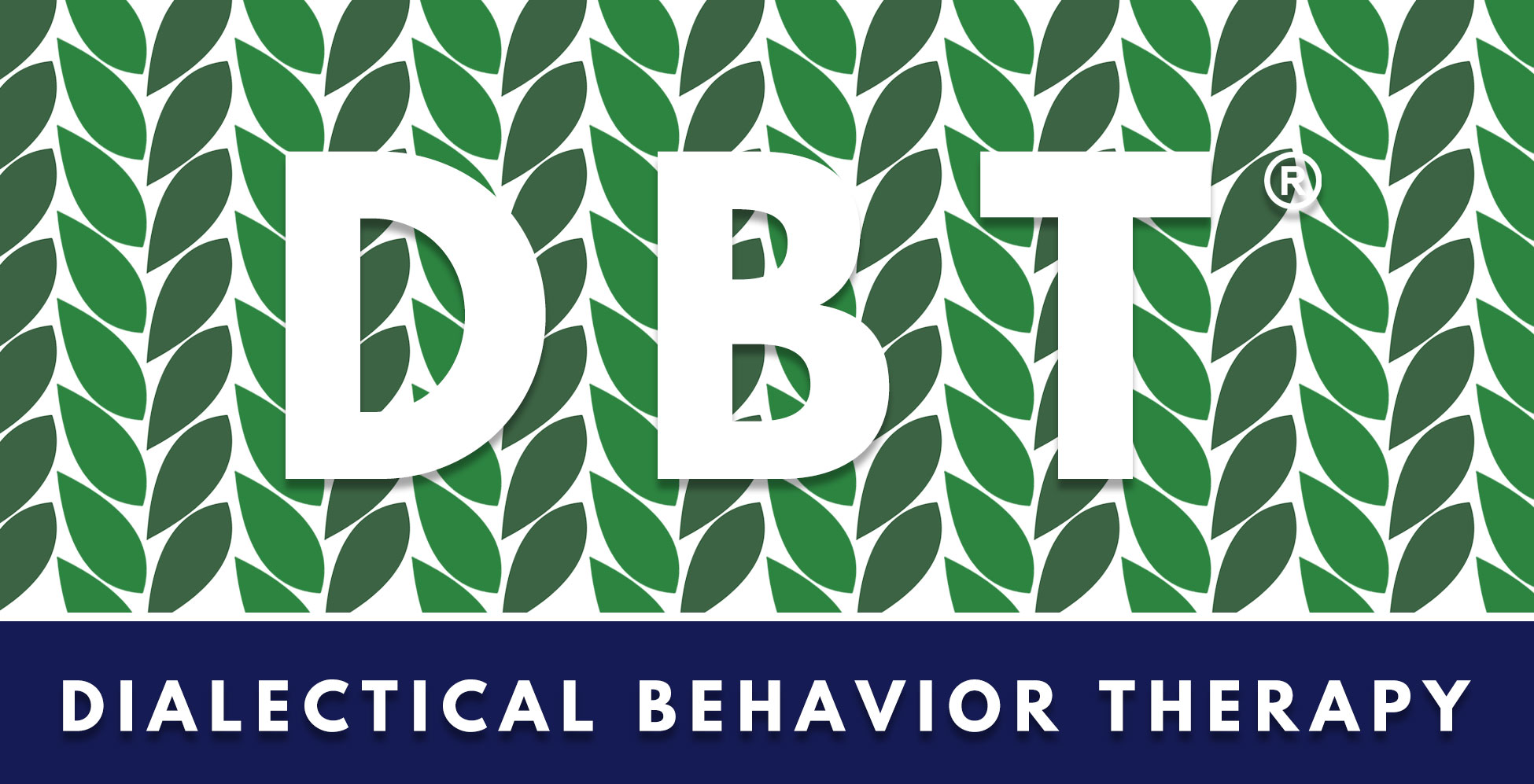
DBT TEAMS: Development and Practice | Article by Series Editor Dr. Alan Fruzetti
The “DBT Practice Series” by Guilford Press is designed to provide an accessible and step-by-step exploration of essential components of Dialectical Behavior Therapy (DBT). This series delves deep into various aspects of DBT treatment, such as phone consultations, chain analysis, validation, family interventions, and more, aiming to introduce you to the essence of the latest clinical innovations, while offering practical assistance based on the key principles and scientific foundations of DBT.
This article about DBT treatment teams is the third book in Guilford Press’s DBT Practice Series. This series aims to meet the demands of therapists who want to know how to effectively practice DBT while adhering to the DBT protocol. Initially developed to treat suicidal and self-harming behaviors in individuals with borderline personality disorder and related conditions, DBT has evolved to address various aspects of treatment, including chain analysis, validation, phone coaching, family interventions, treatment team consultation, and effective use of dialectical strategies, among others, since the publication of the original treatment manual (Linehan, 1993a).
Reflecting on the past 30 years, Marsha Linehan, a young psychologist at the time, and her colleagues at the University of Washington developed DBT. However, at the time of its development, it was uncertain whether DBT would be accepted and adopted by the therapy community struggling to treat individuals with chronic suicidal and self-harming behaviors (typical symptoms of borderline personality disorder). This series was developed with the support of Marsha Linehan, aimed at helping therapists provide DBT treatment more effectively, centralizing the DBT standard protocol and refining and enhancing their skills.
Looking back, Marsha Linehan’s influence in this field over the past 30 years is truly remarkable. Her achievements have spread widely and her impact has been immense. Before her work was widely accepted and disseminated, individuals with borderline personality disorder engaging in suicidal and self-harming behaviors were stigmatized with a sense of hopelessness, as there were no evidence-based treatments available. Those who practiced DBT faced a challenging prognosis. DBT treatment was only available in a small clinic at the University of Washington. There were no treatment manuals or skill training manuals, nor were there clear guidelines for effectively teaching, disseminating, and implementing the treatment.
Where are we now? Stigma toward clients has significantly decreased, hope for treatment has increased, and among mental health professionals, the belief that problems related to borderline personality disorder are treatable (although there is still much progress to be made) has become widespread. Furthermore, a considerable number of studies have strongly supported the efficacy and effectiveness of DBT. The DBT treatment manual (Linehan, 1993a) and the skill training manuals (Linehan, 1993b; 2015a, 2015b) have been read by numerous individuals worldwide. Certified DBT teams, having received high-quality DBT training, are helping thousands of clients in outpatient, residential, hospital, and other settings not only in the United States but also in various countries. Many of these therapists have demonstrated their commitment and competence through a rigorous process to become certified DBT therapists. Additionally, other effective treatments with experiential evidence for addressing difficulties related to borderline personality disorder are being developed or refined.
Moreover, DBT has successfully evolved and adapted through application and adjustment, focusing not only on treating borderline personality disorder itself, but also on addressing the major causes of symptoms (such as various issues related to emotion dysregulation) in a variety of treatment contexts, including preventive settings. Recently, Marsha Linehan was named one of the “Great Scientists of this Era” (2018), which is perhaps an unsurprising result.
DBT is an integrative treatment consisting of a comprehensive set of therapeutic interventions (types and functions of treatment). It encompasses not only individual psychotherapy, but also various treatment types, such as group skills training, phone consultations, family interventions, and treatment team consultations. DBT integrates techniques and treatment areas of acceptance-oriented therapies (e.g., validation, warmth, encouragement) with those of behavior therapy and emotional science (e.g., strategies and accuracy of scientific analysis of clear treatment goals, behaviors [emotions, thoughts, actions]). Furthermore, DBT emphasizes the use of psychological skills and social skills to address various problems. DBT treatment enhances safety, stability, and self-control for clients while minimizing dropout rates, and has a strong evidence base in improving mood states, self-esteem, interpersonal relationships, family, school, work functionality, and more. Due to its generally stable treatment outcomes and reduced relapse rates, the cost and effort invested in DBT treatment are meaningfully reduced over the long term when compared to alternative treatment techniques.
(More content)
Marsha Linehan has had a tremendous impact on the field of psychology as a whole. She has profoundly influenced how we perceive and treat borderline personality disorder, emotional dysregulation in cognitive-behavioral therapy, emotion regulation disorders, treatment teams, and countless other issues and phenomena. This book is a must-read for both beginners and seasoned clinicians in the field of DBT treatment. Through comprehensive guidelines, practical examples, and suggestions, it applies the fundamental principles of DBT and integrates the learning, research, and new standards that have evolved over the past 25 years in the realm of DBT treatment teams. Furthermore, it offers valuable content not only for those wanting to form a treatment team beyond simply exchanging information but also for therapists interested in creating a more comprehensive therapeutic team in the realm of cognitive-behavioral therapy (CBT) or other therapeutic approaches. Of course, all the content in this book is based on the content of Dr. Linehan’s initial treatment manual (1993a). The DBT Practice Series is not intended to replace the core DBT manual (Linehan, 1993a, 2015a, 2015b) but rather to expand upon it. This book thoroughly enhances and expands our thinking and practices about DBT treatment teams. Each book in this series showcases the development of today’s DBT through clinical innovation and rigorous research.
Table of Contents Introduction to DBT Treatment Teams Tasks and Roles of DBT Treatment Teams: Who Does What? DBT Treatment Team Leaders Structure of DBT Treatment Teams: The Agenda Therapeutic Approaches for Therapists Responding to Problem Situations in DBT Treatment Teams Suicide Crisis and DBT Treatment Teams Getting Started with DBT Treatment Teams
DBT NOW

DAY RETREAT @ SEOUL
“Where does our suffering come from?”
“What is the Karma that professionals trying to alleviate the pain of others’ minds possess?”

DBT Day RetreatㅣAwakening Spring Within @ Musangsa
Among those who are involved in DBT therapy or dedicated to the field of mental health, there are individuals who have already engaged deeply in spiritual practice, as well as those who are newly embarking on this path. Even scholars who resonate with Marsha Linehan and her philosophy are engaging in profound spiritual practice within their respective religious institutions.

DBT TEAMS: Development and Practice | Article by Series Editor Dr. Alan Fruzetti
Songhee Chae, MA
Jennifer H R Sayrs & Marsha M. Linehan (2019)
DBT TEAMS: Development and Practice

Antiracism in clinical practice
Yekyung Kim, BSc
Going where angels fear to tread: Antiracism in clinical practice (Faria Kamal, Ph.D.)

Telehealth DBT skills training for individuals with Multiple Sclerosis and their support partners
Songhee Chae, M.A.
Depression, anxiety, and emotion regulation difficulties in patients with multiple sclerosis
Unspoken distress of their spouses and caregivers
DBT therapy can offer hope to those experiencing such pain.

DBT for Adolescents with Bipolar Spectrum Disorder: Control Study Results
Songhee Chae, M.A.
Controlled study results suggest that DBT therapy effectively reduces the suicide crisis in adolescents with bipolar disorder.















